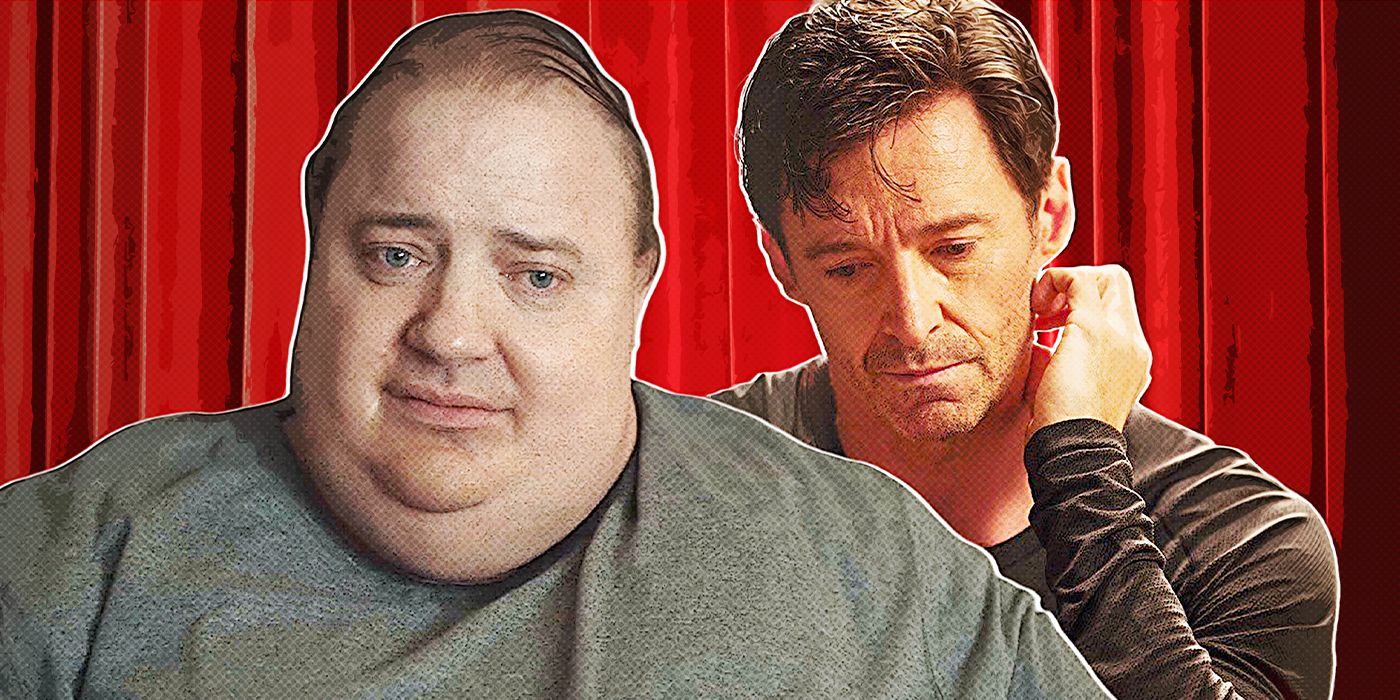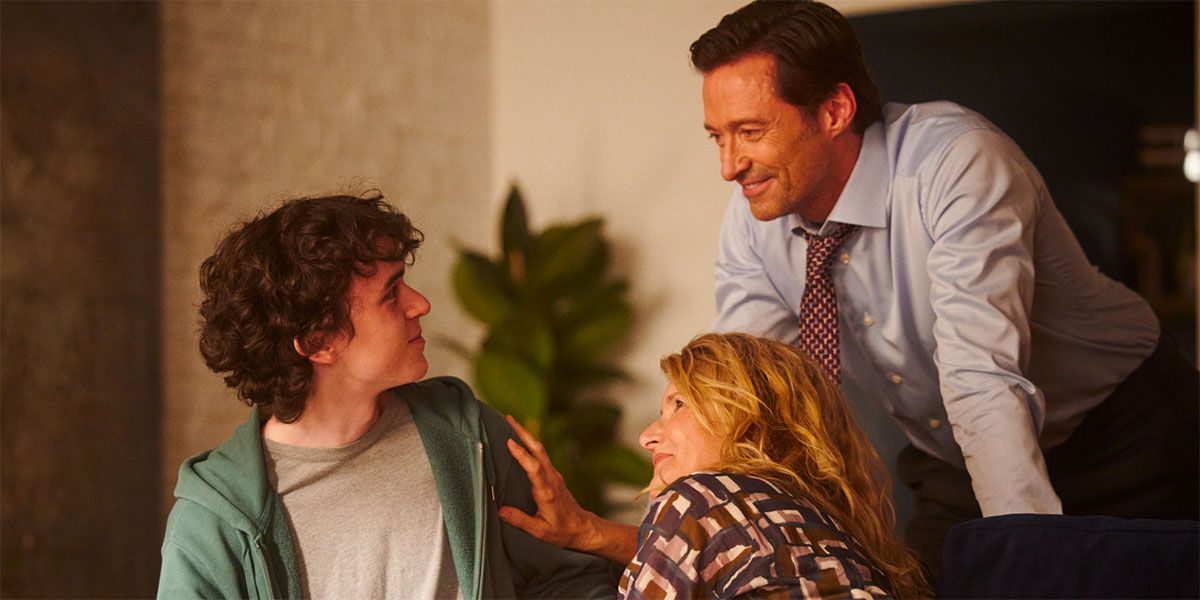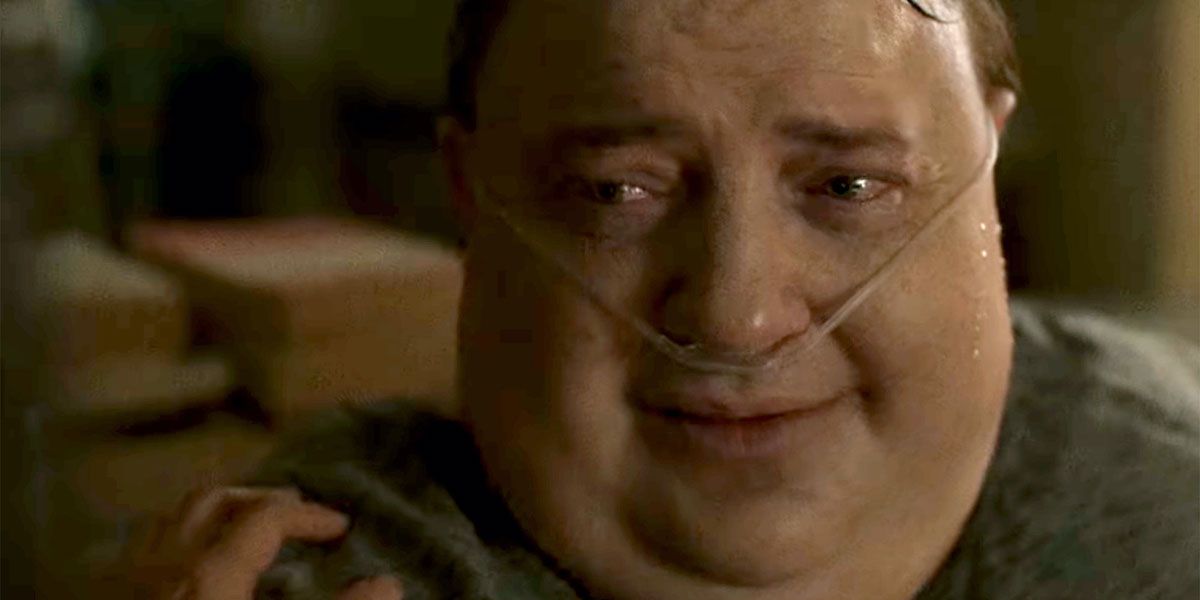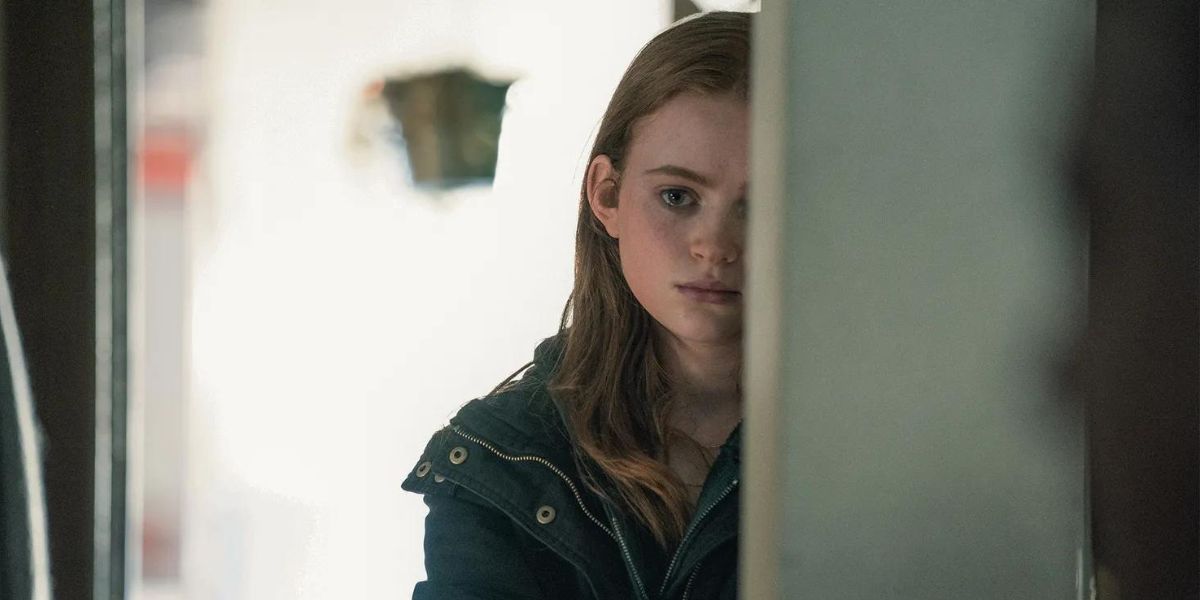Editor's Note: The following contains spoilers for The Whale and The Son.
Many of the best filmmakers working today, such as Kenneth Lonergan, Martin McDonagh, Aaron Sorkin, and Mike Leigh, began their careers as playwrights before making the transition to cinema. It makes sense, as the storytelling skills necessary for a live production are quite similar to those involved in film production. Some of the greatest films of all-time were inspired by classic stage plays; Dangerous Liaisons, A Streetcar Named Desire, and Glengarry Glen Ross all managed to be just as electrifying on the big screen as they were in front of a live crowd. However, creating a strong adaptation takes more than just putting a camera in front of the stage; a director still needs to make decisions that tell the story in a visually compelling way.
This year’s awards seasons saw the festival debut of both Darren Aronofsky’s The Whale (based on the play of the same name by Samuel D. Hunter) and Florian Zeller’s The Son (based on his play Le Fils). Brendan Fraser is currently the frontrunner to take home the Academy Award for Best Actor for his performance in the former as a dangerously overweight, heartbroken college instructor trying to form a relationship with his daughter, Ellie (Sadie Sink). Hugh Jackman will once again attempt to gain EGOT status if he ends up taking home the top prize for his performance as the struggling father Peter Miller, who is coping with his depressed son, Nicholas (Zen McGrath).
While Aronofsky was able to capture the intimacy of the stage with The Whale, Zeller failed to translate the material for The Son in a compelling way. These two films serve as great examples of what filmmakers need to do in their adaptation; while they both feature great performances at their center, The Whale allows Fraser to flourish, and The Son wastes Jackman’s talents.
Direction and Movement in 'The Whale' and 'The Son'
Much of the attention that The Whale has received is due to the intense makeup and prosthetics used to turn Fraser into a 600-pound man, but Aronofsky truly makes it more than just a gimmick; he inserts thematic cues, such as the recurring image of a bird in Charlie’s window that marks the passing of time. Aronofsky is known for inserting Christian imagery into his films (just watch Noah, The Fountain, or Mother!), and he includes a gorgeous final scene at the end of The Whale that would have only been possible on screen. The shot of Charlie lifted in an angelic light is a striking image that makes his moving conversation with Ellie even more powerful.
By comparison, Zeller seems to shoot every scene of The Son in the blandest way possible; while theoretically this would help capture a sense of intimacy, it feels unrealistic and dull as the melodrama drags on. The dialogue itself is so frank and exacting that it makes the characters seem like they’re lecturing the audience; seeing these uncomfortable conversations on stage may have been powerful, but since people don’t really talk like that in real life, it's a strike against The Son’s realism. Too often the performers feel like they’re trying to give larger-than-life performances that will reach the back of the auditorium.
The Context of Isolation in 'The Whale' and 'The Son'
The Whale is interesting because it takes place within the confines of Charlie’s apartment; given his unhealthy obesity, he is unable to move, and fears being ridiculed in public. While this could have made for a dull film, Aronofsky explores how Charlie’s isolation has caused him to lose all sense of self-dignity. He’s willing to destroy his body because he feels that his life is no longer worth living; Aronofsky inserts the same sort of body horror that made his previous films Black Swan and Requiem For A Dream so disturbing. While The Whale has sparked controversy due to concerns that it is fatphobic, Aronofsky makes it clear that the horror isn’t Charlie’s weight, but that he’s willfully destroying himself out of depression.
By comparison, The Son features a series of scenes that take place in isolated locations, with seemingly no attention paid to the larger context. Even though Peter is supposedly a political consultant, we don’t see any details of his campaigns or newsreels of the candidates he’s supporting. While it’s mentioned that Nicholas takes long strolls in the park alone, we never get to see these moments in detail. The brief moments in The Son that don’t take place in small apartment rooms, offices, and hospitals feel awkwardly inserted; a few moments where Peter and Nicholas walk down the street don't give any real context details that would show the brewing divide between them.
The Whale also takes advantage of technology; Charlie is a college professor at an online university who refuses to show his face on camera. Seeing his video conferences, emails, and obsessive notes shows why he is so obsessed with working all the time; it makes the reveal that he’s doing it all for Ellie even more powerful. Simple context clues (such as news footage of the 2016 Presidential Election primaries) ground Charlie in a specific time and place; there’s an active world around him, but it’s not one he ever sees. The Son doesn’t have any of that detail; while the text itself is timeless, it's not easily translated.
Flashbacks and Exposition in 'The Whale' and 'The Son'
Both films allude to past events, but it's The Whale that finds a creative way to deliver the exposition. Ellie’s social media posts are able to indicate her emotional state, and we see Charlie’s heartbreak as he looks at photos of his partner, who has passed away. The film is also able to slowly peel back Charlie’s experience with religion as the missionary Thomas (Ty Simpkins) scours his apartment.
In The Son, all the exposition is delivered in dumps of dialogue; Anthony Hopkins even pops up as Peter’s father to lecture the audience about how awful of a childhood his son had. There’s not a hint of subtlety during the discussions that Peter has with Nicholas’ medical consultants, which makes the commentary on mental health particularly distasteful. The brief flashbacks we do get to Peter and Nicholas swimming together on the beach feel like the most generic childhood memories possible.
There’s a power in seeing something performed live, but cinema requires more than just authenticity. There needs to be an artful way of communicating a story visually, as sometimes it might just be better for a story to remain on stage. The Whale is a powerful experience that stands alone as a translation, whereas The Son may make the audience wish that they had seen this same story in its intended format.




